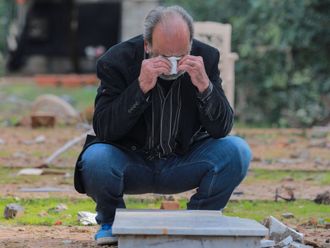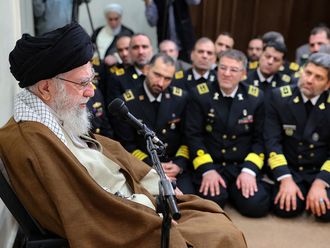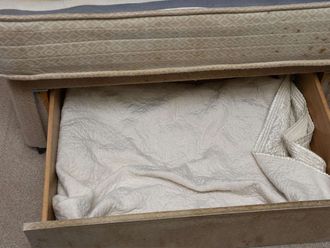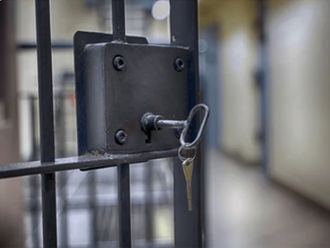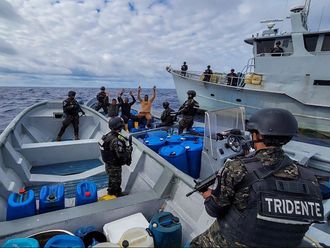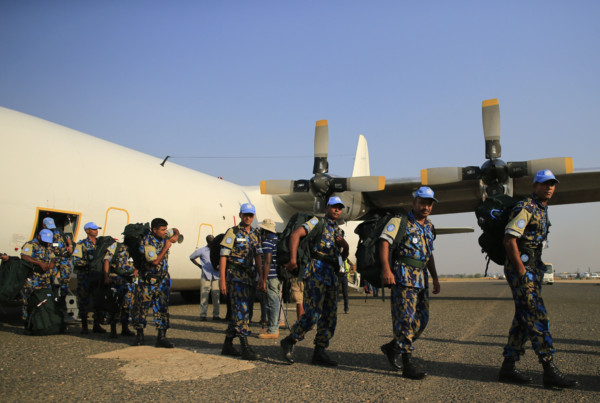
JUBA, South Sudan
Few moments conjure as much fear in South Sudan as the massacre of Bor.
Long before South Sudan became a nation, while it was still in the throes of one of Africa’s longest civil wars, fighters tied to a leader named Riek Machar stormed through the city of Bor in 1991, killing 2,000 fellow southerners in an attack that would lay bare the deep divisions in this impoverished land.
Since then, the people of South Sudan have had periods of peace, compromise and even shared jubilation at the birth of their nation in 2011. Machar himself became vice-president, apologising for the massacre.
But there was never a real and lasting reconciliation between the factions threatening to pull this new nation apart, and on Tuesday fighters allied with Machar charged into Bor once again.
“This was a fire waiting to be ignited,” said John Prendergast of the Enough Project, a nonprofit anti-genocide organisation. “It was just when and not if.”
When leaders from around the world pressed South Sudan into existence — seeing its creation as the best way to end decades of war with its neighbour to the north, Sudan —- they were well aware that the bitter internal rivalries in the south had never been fully resolved.
To help this fledgling nation’s chances, international donors like the United Nations and the United States have pumped in billions of dollars of aid, hoping to create a viable country from one of the poorest places on Earth. But what has long been missing, analysts say, is any reliable structure for settling conflicts in a way that would keep the new nation from spinning into a civil war of its own.
“If those issues weren’t resolved beforehand, when there was still leverage to keep people at the table, then you were really sowing the seeds for the deterioration of any agreement that was going to be reached,” said Charles Stith, a US ambassador to Tanzania during the Clinton administration.
The fighting now tearing at the seams of this nation broke out in a military barracks here in Juba, the capital, on Dec. 15. President Salva Kiir accused Machar of staging a coup attempt. Machar denied it but fled to the bush, demanding that Kiir resign. Fighting between forces loyal to each side quickly spread to at least 20 cities, displacing 190,000 people and killing at least 1,000, probably more, many of them civilians.
But the makings of a crisis existed well before then, in the tenuous marriage of convenience that placed the hopes of this country in the hands of political rivals who often shared long and tortured pasts.
“We didn’t suggest who should be No. 1, 2 or 3 in the government; that was their own” choice, said a senior US official, speaking on the condition of anonymity about the negotiations years before independence. “They accepted Riek Machar back into the government.”
Instead of governing through strong institutions, many power brokers and generals in this nation still essentially command their own forces, their loyalties to the government often determined by their cut of national oil revenues.
“It is an extortion racket with bargaining ongoing on a regular basis, with either violence or the threat of violence” as a form of negotiation, said Alex de Waal, executive director of the World Peace Foundation at the Fletcher School at Tufts University.
When things break down, the situation quickly plunges into violence. Rebel forces attacked Bor on Tuesday, engaging in fierce fighting with government troops over the city, a strategic location seen as a gateway to Juba. Col. Philip Aguer, a South Sudanese military spokesman, said the fighting was “very intense,” while a spokesman for the UN said the rebels had captured an airstrip and a major crossroads leading to the capital.
Jacob Achiek Jok, 29, fled Bor on Tuesday morning when the fighters were about to enter town. Many other terrified residents tried to flee as well, he said, either by road or across the White Nile. Some did not make it.
“Many people drowned,” Jok said. “They are normal citizens, not soldiers.”
International mediators are rushing to bring the parties to the negotiating table before the cycle of violence escalates any further. Both sides agreed Tuesday to send negotiators to the Ethiopian capital, Addis Ababa, but the fighting continued and some news agencies reported that Machar said he would march on the capital next.
“The current information we have is that both sides are coming” to the negotiations, said Dina Mufti, a spokesman for the Ethiopian Foreign Ministry. “We are expecting the arrival of both delegations, perhaps today.”
Although most South Sudanese were not yet born at the time of the massacre in Bor — the median age here is less than 17 years — its legacy helps explain the deep-seated distrust and dissension that continue to plague this young nation.
During the long war for independence from Sudan, Machar, a British-educated leader of the Nuer ethnic group, split from the main southern liberation movement. It was during that period that his supporters slaughtered members of Kiir’s ethnic group, the Dinka, in Bor in 1991.
In the current dispute, a power struggle between rivals in the same political party - Kiir and Machar — has once again deteriorated into a wave of ethnic killings, bringing this country to the brink of civil war. And as it was during the struggle for independence, each side in the current conflict, Dinka and Nuer, has been accused of killing civilians in recent weeks.
Gadet Koang Deng, one of the roughly 75,000 people taking shelter at UN bases across the country, said South Sudan was not fully prepared for the independence it achieved in 2011.
“We should be under UN supervision for at least 10 years to teach our police to be proportionate, our army to behave,” said Deng, 31.
Rebellions in the countryside and violence by undisciplined security services — many of them former militia members absorbed into the armed forces for the sake of expedience - offered early signs that South Sudan would continue to wrestle with its divisions. Members of the Sudan People’s Liberation Army were not happy to see rebels they regarded as traitors given higher ranks and salaries than others who had fought loyally for the cause.
“You had all these armed militias that had to be bribed back in by the government, and the placing of their leaders in high ranks above SPLA forces,” said Jok Madut Jok, a founder of the Sudd Institute, a research group in Juba.
Machar’s position as vice president was “part of the price that the country has to pay in order to get some kind of stability,” Jok said, adding that many people were “ringing the alarm bells” about political volatility well before the fighting started Dec. 15.
The tensions made the difficult task of governing an impoverished country with few roads, poor health care and not enough schools even more challenging.
“There doesn’t seem to be a game plan,” said Eric Reeves, a professor at Smith College in Massachusetts who has researched both Sudans extensively.
After Machar said he would challenge the president in the 2015 elections, Kiir fired him and dismissed the rest of his Cabinet in July, effectively ending the uneasy power-sharing agreement holding the government together.
Then on Dec. 6, Machar and more than a dozen supporters held a news conference in which they accused Kiir of “driving our beloved Republic of South Sudan into chaos and disorder” through efforts to consolidate power that were “likely to plunge the party and the country into the abyss.”
Soon afterward, Machar’s allies were arrested and witnesses described his fellow Nuer residents being rounded up and killed in the capital, leading to reprisal attacks against Kiir’s ethnic group in other parts of the country.
“The two men will eventually sit down, resolve their issues, laugh for the cameras, and the thousands of civilians who have died will not be accounted for,” said Jok of the Sudd Institute. “No one will be responsible for their deaths.”


